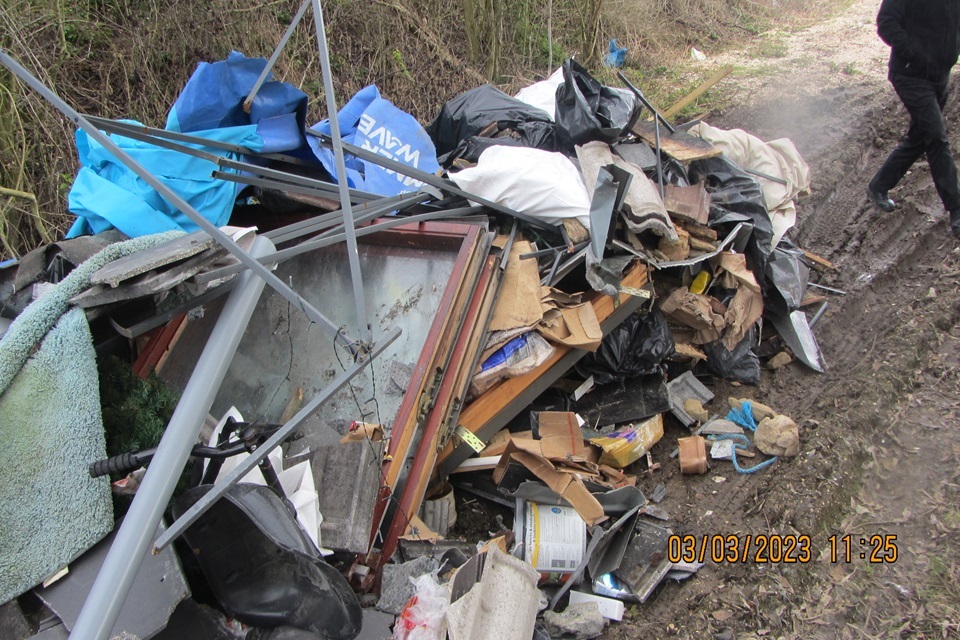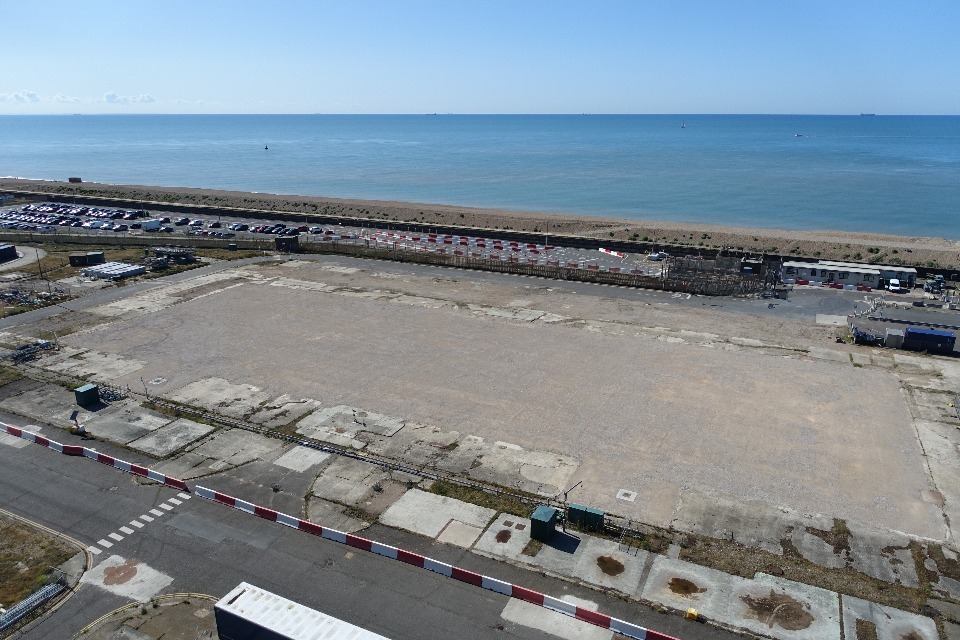It’s a pleasure to be back in Washington. Thank you to Lord Mandelson and the British Defence Staff, and to the Centre for Strategic and International Studies for hosting what is probably my last public speech as Chief of the Defence Staff.
There normally comes a point when a Chief steps down that they let forth on all the frustrations and opinions they have bottled up during their time in post.
Those of you hoping for me to let rip, or to spill the beans on the inner workings of the four different administrations I’ve served, will be disappointed.
I’m afraid I’m going to be irritatingly consistent. My narrative today is pretty much the same as it was at the outset of my tenure four years ago.
For those of you who haven’t made it through one of my speeches before, the gist is as follows we are in a new more dangerous era, but Britain remains safe; NATO is stronger, Russia is weak; and the West has the military, economic and intellectual heft needed to buttress the global system.
Sometimes I’ve been accused of being an optimist – or worse complacent.
But this is less about optimism or pessimism and more about confidence and judgement.
A case in point is Ukraine.
When Russia invaded Crimea, the world looked the other way. And it could have easily done so again in February 2022.
I remember the meetings of the National Security Council as Russian forces mounted on the border.
I’m sure you recall the images at the time convoys of armoured vehicles tens of miles long…the chilling sight of mobile crematoria…residents in Kyiv making Molotov cocktails
At the time we thought the Russian military was much more capable than it has proven to be. We had limited confidence in Ukraine’s defensive strategy. The prevailing view was that Russia would take Kyiv within weeks, if not days.
The choice was whether to back Ukraine or not. Some around the table remained quiet. Others looked awkwardly at their shoes.
But thankfully, this time around, it was the bolder voices that prevailed.
The lion’s share of credit must go to Boris Johnson, Ben Wallace and Liz Truss for their leadership, particularly in pushing through those first supplies of lethal aid.
It was a significant moment when both the gut instincts and principles of politicians triumphed over the potential inertia and innate caution of the Whitehall machine.
That decision was magnified internationally and pursued similarly by Rishi Sunak and Liz Truss as Prime Ministers. And in the same vein credit must also go to Kier Starmer and John Healey, who backed the Government to the hilt in Opposition, and for the consistency of their approach in office over the past year.
This is an example of Britain at its best. True to our values and interests. Consistent in our strategy. United across both sides of the aisle on defence and security. Ready to act quickly and boldly, and lead others to do the same.
So that’s my theme today – how confidence must shape our approach to a more contested world.
And I offer the following points in support
-
First, that Britain has good reason to be confident. In the quality of our Armed Forces and Intelligence Services. In the strength of our defence construct. And that the path before us now is the right one.
-
Second, NATO too should be confident. In the enormous overmatch we enjoy. In Russia’s weakness and Putin’s dilemma. And how that should embolden our strategy of deterrence.
-
Third, the return of statecraft how are leaders are prepared to use the military instrument alongside the other levers of national power to advance our collective interests.
-
Finally, a point on technology and the need to retain our advantage – especially with respect to Artificial Intelligence.
I hope a US audience will indulge me if I start with a tribute to the British Armed Forces.
As I reflect on the past four years, the level of operational activity has been remarkable.
In Europe. Training 60,000 Ukrainians. Being right at the forefront of NATO’s denial and deterrence whether the British Army in Estonia, the Royal Navy in the North Atlantic or the Royal Air Force over Baltic skies.
In the Eastern Med and Middle East. Delivering aid to Gaza. Being ready for an evacuation from Lebanon. Striking Houthi targets. Protecting international trade in the Red Sea – including downing a ballistic missile. A first for the UK.
In the wider world. Safely recovering 2,500 people from Sudan – the largest and longest evacuation of any Western nation. Reassuring our Commonwealth partners in Guyana. Two carrier deployments to the Indo-Pacific.
And at home. At the forefront of national life. Through a Jubilee, a State Funeral and a Coronation. Assisting with Small Boats. Stepping in for the Border Force at airports. Being ready to pick up Armed Policing duties in the capital.
Of course, I don’t want to pretend that we do not have significant challenges. For the past thirty years, we have been asking the Armed Forces to make do with less, even while the operational demands increase. There have been too many deferrals and delays, too greater mismatch between resource and ambition. We are continuing to feel the pinch as a consequence of decisions taken ten or twenty years ago and I do not underestimate the demands this places on our people.
That is now changing and we are on a path of greater investment – but it will take time for the effects to be felt in terms of new capabilities, improved readiness and better support to achieve the ambition of the Government’s Strategic Defence Review to return our Armed Forces to a much more substantial level of warfighting readiness.
But nothing should take away from what the Armed Forces achieve on behalf of the nation every day. And throughout my time as CDS, they have never failed to step up to deliver all that has been asked of them. They are simply magnificent. Thank you to them and their families.
Ladies and Gentlemen, the world is more dangerous, but Britain, the US and Allies are safe.
It is safe because of the quality of the men and women in the UK’s Armed Forces, Civil Service and Defence Industry, as well as our Intelligence Agencies.
And it is safe because we are the beneficiaries of a remarkable defence construct which ought to be the envy of most nations on the planet. It’s based on
-
our status as a nuclear power;
-
our membership of the world’s strongest and largest defensive alliance, NATO;
-
and that our closest ally is a super-power called America.
This is the kind of security construct that keeps a nation safe for the last 80 years AND the next 80 years.
The Deterrent is being renewed – at a time of heightened nuclear rhetoric and proliferating nuclear risk.
NATO has rarely been more relevant, more unified or more focused – and enjoys an insurmountable overmatch against Russia.
And the bridge between Europe and America remains.
The United States may be re-focussing on the Homeland and Indo-Pacific, but it is not stepping away. President Trump’s Administration has been clear that the vital nuclear guarantee remains, as well as its conventional power in the Euro-Atlantic theatre – which was underlined by the recent appointment of a hugely respected American as SACEUR.
And America has been consistent in expecting its European allies to step up to shoulder their fair share of the burden, and that is now happening.
Pax Americana can give rise to a new age of Pax Europa.
For my country, and for European allies throughout NATO, the decision to spend 5% of GDP on National Security – with 3.5% allocated to core military spending – is simply profound.
I do not doubt how difficult this decision is for a government that is contending with economic headwinds and competing demands on the public purse. But Defence remains the first duty of government, and this is the responsible thing to do in a more dangerous world.
I’ve been fortunate to work for four Prime Ministers, each of whom took their defence responsibilities with the utmost seriousness.
That included Boris Johnson and his team devoting a day to meet with nuclear experts and historians to really understand the nature of Britain’s nuclear enterprise.
It included Rishi Sunak and Jeremy Hunt being generous with their time in their first days in office, to listen to Ben Wallace and I as we talked them through the defence spending pressures, and to agree the further investment required.
And I really welcome when Prime Minister Kier Starmer speaks of the end of the peace dividend and a new era of “defence dividend” and a Chancellor whose stated ambition is to make the UK a “defence industrial superpower”.
And then the defence budget itself, which successive Prime Ministers have been prepared to revisit in response to the deterioration of global security.
Our trajectory to spending 5% of GDP by 2035 is now set.
It means we have the certainty needed to deliver the vision set out by the government in their Strategic Defence Review
-
Recapitalising the Army to lead a NATO Strategic Reserve Corps.
-
Restoring a tactical nuclear role to the Royal Air Force.
-
Doubling the size of the Royal Navy’s attack submarine force.
-
Developing a sixth-generation fighter.
-
Adding thousands more long-range missiles to our inventory.
-
And embracing technology much more strongly through directed energy weapons, through hybrid carrier air wings, through investment in cyber, space and AI.
-
All underpinned by a new relationship with industry and a better deal with our people particularly on pay and accommodation.
Taken together this is a response that matches the challenges we see in the world and will keep Britain safe and prosperous.
This leads me to my second point – NATO and the enormous overmatch we enjoy over Russia.
Early in my tenure as CDS I travelled to Moscow with Ben Wallace and met my counterpart General Gerasimov, where I warned him that invading Ukraine would be a catastrophic mistake.
I am even more convinced of that four years later.
Last year Russia gained half of one percent of Ukraine’s territory, in return for over 400,000 killed and wounded.
This year it has taken a similar amount of territory for a further 200,000 killed and wounded.
More than a million lives sacrificed in total for Putin’s Special Military Operation.
And what about the wider cost?
The Black Sea Fleet has been sent scuttling by a country with barely a Navy.
Russia’s strategic bomber force has been decimated by a country with barely an Air Force.
And Russia has had to shift its economy to a war effort, which it will be incredibly hard to row back from.
Putin is left with a dilemma agree a ceasefire with his stated aims incomplete and little to show his people in return for the lost blood and treasure; or continue the war indefinitely, and watch his country become even weaker and poorer chasing the false dream of subjugating Ukraine.
In the meantime, we should not be cowed by Putin’s rhetoric or his campaign of state-sponsored sabotage.
Disgraceful as they are, they do not change the calculus.
Indeed, the very reason Russia is pursuing sub-threshold attacks against us is because Russia is unwilling and unable to do so through more overt means.
Putin doesn’t want a war with NATO. He can’t even win a war against Ukraine.
To be sure, Russia is more dangerous because she is weaker, and because Putin has no compunction about using violence to achieve his aims.
And we need to be clear-eyed about the threat – which is felt most keenly by those Baltic and Nordic nations that border Russia.
But personally, I am wary of too great an emphasis on homeland defence, or a fortress Europe. We need to defend forward. Russia has more cause to be fearful of an Alliance of 32 than the other way around.
The policy of NATO is to deter. And we deter by demonstrating to Russia that we are stronger, that we are ready to fight, and that we will beat them.
That means contesting Russia in every domain – nuclear, land, sea, air, cyber and space – as well as in the diplomatic and economic arenas. It also underlines the imperative to double down on our efforts to support Ukraine’s ability to defend its courageous people against Russian aggression to preserve their hard-won freedom and independence through a just and lasting peace.
These last two – diplomacy and economics – matter most and bring me to my third point. The immense latent strength of Europe, America and our partners.
Sometimes we forget how strong the West remains.
Europe and North America account for half the world’s wealth.
NATO spends more on defence than Russia and China combined.
The tech hubs of America’s west coast, and the universities of Europe, remain as vibrant and innovative as they have always been.
And we are able to draw upon the most extraordinary breadth of partnerships.
From the British point of view these include Five Eyes. NATO. The Lancaster House agreements with France. The Trinity House agreement with Germany. The Joint Expeditionary Force of ten Northern European nations. The Five Power Defence Arrangements with South-East Asia. Our deep and historic ties to the Gulf monarchies and the island nations of the Caribbean. AUKUS, GCAP, and our burgeoning relationships with Italy, Norway, Japan and South Korea and many others.
For America your network is even greater. We talk about the UK/US Special Relationship, but the truth is you have special relationships all around the world.
In April 2024, the US, France, Britain and other regional partners joined together to prevent hundreds of Iranian missiles and drones reaching Israel. Only America could have coordinated such a complex operation. Only America could draw together partners from Europe and the Middle East in this way.
Compare and contrast the strength and utility of our partnerships with those of Russia.
In 2022 Russia and Iran signed a strategic partnership clause – but Russia has done nothing to support Iran in its recent predicament. Nor has China. When the Axis of Four comes under pressure it dissipates.
As for Beijing, China’s interests require stability in the world above all else, as is the case for any truly global economic power.
And Russia’s experience in Ukraine provides a sobering analogy with respect to Taiwan.
War is an unpredictable force. There is no guarantee that it will be short, sharp or decisive. The likelihood is the opposite. And the consequences and reverberations are immense. A point I made to my counterpart, General Liu, when we met in April.
America, Europe and our partners don’t have to watch helplessly from the sidelines as the post-1945 settlement deteriorates. We have the financial, military and intellectual might to buttress and defend the world order and confront those who undermine it.
But we do need the confidence and willingness to wield the military instrument.
We have seen this in the way Israel has neutered Hezbollah in Lebanon. Through the willingness of the US to strike at Iran’s nuclear facilities. And through the extraordinary outcome of the Hague Summit.
Soft power, by itself, is rarely enough. As the great US President Theodore Roosevelt declared, “speak softly and carry a big stick.”
And that leads me to a broader point.
Too many of the contemporary discussions over the future of defence are reduced to simplistic “either / or” debates. The world is seldom that neat and tidy. In most cases, the answer needs to be “and”. Hard and soft power. Regional and global. Atlantic and Pacific.
And in the same way for technology, it’s a false choice to think we can simply dispose with the old altogether in order to make way for the new, or that there is an easy trade-off to be had between capability and mass.
I remember 15 years ago, when we were fixated on counter insurgency operations and Afghanistan was the UK’s ‘Main Effort’, there was a tendency for anything not deemed relevant to that task to be regarded as needlessly exquisite.
Why was the Navy building anti-air destroyers when all it really needed was cheap and cheerful corvettes to go after Somali pirates? And couldn’t the RAF make do with Tucanos rather than Typhoons?
Thankfully we worked hard to protect enough of these kinds of platforms – and preserve the warfighting instincts required for peer competition. And it’s a good job we did, because these are precisely the ‘big sticks’ and capabilities that are in demand now to counter a resurgent Russia and to defend against the kind of long-range missiles that the Houthis are using in the Red Sea.
My point is two-fold
We do get many of the big decisions right. More than we give ourselves credit for. And we are better at strategy than we think.
But at the same time, we need to be wary of simplistic choices. The strategic context has – and will continue – to shift at pace. Resilience and redundancy, and the ability to flex and adapt, and an understanding of the value of all the levers of power and the quality of a nation’s underlying security construct are the attributes for long term security.
We are still going to need submarines and jets and armoured vehicles alongside our mass ranks of drones and uncrewed systems.
How we shape the future is never one or the other. It is the application of all the levers of power. That is both classical and orthodox teaching. It’s just that we sometimes need reminding.
And then my final point on AI.
My worry with this debate is that we embrace our inner geek by focusing on the technology and its applications, and we miss the broader point about the strategy that needs to accompany it.
What we have seen from the AI revolution to date is nothing compared to what is just around the corner. Whoever reaches Artificial General Intelligence – and then Artificial Super Intelligence – first, will have an enormous military advantage.
I may currently have a 10-minute advantage in targeting my opponent to take out a data centre. But that margin is getting smaller exponentially. And if ASI means I fall one second behind my opponent, I may never catch up.
It’s a race we must win.
But that’s very difficult for most countries to do – it is the preserve of only a few.
So we need to think of it in the same way as we did with nuclear. People like Gundbert Scherf of Helsing are right to challenge us as to whether we need to be pooling our efforts through a Manhattan Project type endeavour, and through the architecture of international security that followed. ASI will become a very significant advantage that can be shared and enhanced by alliances of like-minded nations. And it may become a fundamental element of a nation’s security construct in the way I described earlier Nuclear, Collective Security, America as a principal ally, and – in the future – ASI.
And turning to my earlier themes, that requires Europe AND America working together, utilising ALL our advantages across the instruments of power, and ensuring we continue to maintain the relative peace we enjoy today.
The good news is that that is within our gift. Perhaps the even better news as I depart the stage is that this will be for others to decide and do. And I leave delighted with having had the opportunity to serve and the privilege to both lead and stand on the shoulders of giants – the dedicated and extraordinarily able men and women who serve in uniform and keep us all safe. Thank you.








